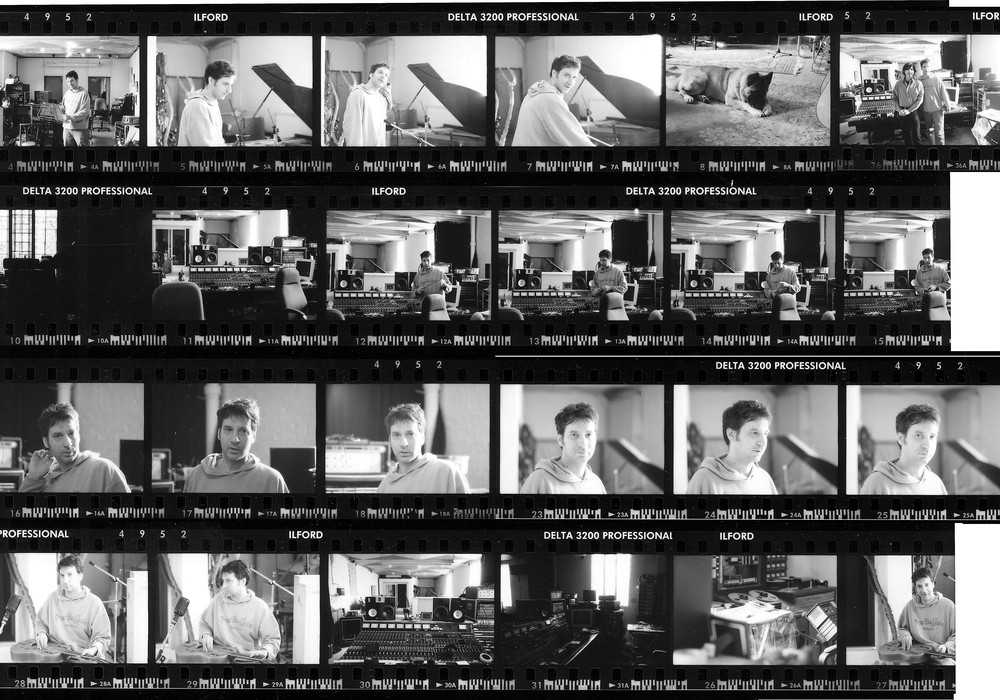When people hire me to mix their songs, I frequently come across situations where we are not using the same terminology for the sources clients are giving me to work from. Yes, sometimes one word can mean several different things, but generally the consensus among audio professionals is fairly clear. So, I started making a list of terms to help us all out.
Song
A piece of music or structured sound. A recording can represent the Song, and the Song can come to life via the recording process, but the Song is not specifically always the recording.
Session
In a digital audio workstation (DAW), a Session contains all of the elements associated with a recording project. These can include audio files, mixer settings, routing, automation, edits, and more. A DAW Session encompasses all assets needed to open, play, and edit the song. If you want to share a Session with another engineer, you must include the Session file and the underlying audio files, backup Sessions, and other housekeeping items. Most engineers create a different Session for each song; but more than one song may live in the same Session, especially during principal tracking or capturing of live performances. A DAW Session is distinct from a recording Session, which generally refers to the place and time music is tracked. This is particularly important when hiring a mixing engineer. If you say, “All these songs to mix are from the same Session,” this informs the engineer that most of the basic instruments will have similar sounds and track counts among the batch of songs. This is important information to impart because it could have been that all the songs were in the same DAW Session, but captured on different days in totally contrasting ways!
Track
An audio file that generally runs the length (or part of the length) of a song, even if it is not always generating sound. Note that a collection of MIDI notes, or MIDI with a virtual instrument, can also be a Track as it is a linear representation of something that can generate sound as the session plays. Usually this is mono or stereo, though it could be more if one was working in immersive audio.
Clip
A portion of recorded sound that is usually organized or contained within a track. A Clip could be a whole track, or a track can be made up of many Clips. Clips are found in computer-based recordings, but not on analog tape or other linear systems where you only have tracks. Some DAWs use different terms for Clips, such as objects, snippets, regions, and so on.
Submix
A Submix is a channel that combines a group of audio signals that require similar processing and/or level control. Think of a Submix as a shipping department where tracks are gathered and processed before they are sent to their destination. Submixes are useful for being able to control several tracks with one fader, but they can do other tasks, including going into another Submix.
Stem
There are many instances when it can be useful to have instrument and/or vocal elements separated into constituent submixes. In a standard rock song, there could be drums, guitars, bass, and vocals. Rendering each of these elements into their own files creates a Stem. In theory, playing all the Stems together will sound just like the entire mix. It is worth noting that Stems do not need to be stereo. A Stem could be a single track with processing added, like a lead vocal with compression, EQ, and/or reverb. Many times, my clients refer to their tracks as Stems. This leads to confusion, as I have to ask if they are sending me submixed or combined elements of the song, and if it might be better to send me the raw individual tracks. Usually, they are simply using the wrong words.
Channel
A path for audio to be routed through, for summing and/or assignment. Think of an old school analog console, where some Channels have instruments, and others have effects returns. A Channel itself does not possess its own audio; rather it is simply a conduit for audio to come through. This is important to understand, as a Channel could be a pathway for many tracks and even stems.
Demo
A version of a song that is generally not related, recording-wise, to the desired final mix. By most parlance, a rough mix is not a Demo, though I see some pros use “Demo” to denote a rough mix, at times.
Rough Mix
A Rough Mix of a song that has been determined to not be the final mix. This can possibly be done just to reference what was recorded during the tracking session, or it could be a nearly finished mix that still needs some work. Sometimes Rough Mixes end up as final mixes. You never know!
Mix
An iteration of a song created from mixing tracks or stems together, likely via channels.








